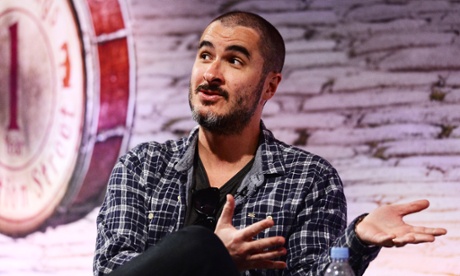The music industry has endured its share of crises in the digital era – from the slow death of the CD to the rise of online piracy. Now it is the turn of radio broadcasters, who face a worrying exodus among young listeners because of streaming.
At first glance, radio listening in the UK appears robust, holding steady at around 48 million adults – 88% of Britain’s adult population – listening to just over 1bn hours each week. Those figures, however, belie the fact that radio is facing a crisis over youth audiences.
Since 2010, around 840,000 15 to 24-year-olds have switched off for good, according to research from Enders Analysis. And among the 6.5 million or so who do still tune in, the amount of time they spend listening has plummeted 29% between 2010 and 2018. The problem is even more acute at the BBC, with total listening hours among 15 to 24-year-olds falling 40% over the same time period.
Radio broadcasters are ringing the changes to try to keep hold of young audiences. BBC Radio 1, the station that attracts the biggest youth audience in UK radio, has replaced Nick Grimshaw with Greg James to spice up its flagship breakfast show. Zoe Ball has taken the helm of the Radio 2 breakfast show, the biggest show on radio, after Rupert Murdoch’s Wireless Radio signed up her predecessor, Chris Evans, in a bid to attract new listeners to its digital-only Virgin Radio.
The BBC admitted last year that it had found for the first time that 15 to 34-year-olds spent more time listening to streaming music services – such as Spotify, Apple and Amazon Music, and YouTube – than all of the BBC’s radio services. Among 15 to 24-year-olds, music streaming has grown rapidly to account for about a third of their listening time from about 10%. So is streaming killing the radio star?
“People are going to music streaming services and we are seeing younger people turning off the radio,” says Gill Hind, an analyst at Enders. “But a lot of streaming is taking the place of listening to collections and CDs, not necessarily directly substituting live radio listening. Young people are still tuning in but they are listening for shorter periods each week. There are so many alternative options out there, from YouTube and gaming to Netflix and streaming music.”
Spotify’s move earlier this week to spend hundreds of millions on two podcasting companies – and earmark up to $500m (£387m) for more acquisitions in the field this year – is a clear indicator that the rise and rise of podcasts looks set to be the next looming challenge for traditional radio. Spotify quantified the scale of the threat, saying it expects that over time 20% of all listening on its service will be non-music content. It currently has 207 million monthly active users.
The digital disruption in radio is part of the same phenomenon that has already affected other market sectors – most notably TV, where viewing hours among 15 to 24-year-olds is down 45% in the UK since 2010. Siobhan Kenny, the chief executive of the industry body Radiocentre, says radio broadcasters are handling it better though.
“Every medium has challenges with younger audiences, but radio is riding it out better than others,” she said. As the radio industry has moved into the internet era, broadcasters have seized on the opportunity to launch new local and national digital-only stations, which are doing better at attracting listeners. There were 453 digital stations at the end of 2018, up from 192 in 2010.
The industry argues that the rise of products such as Amazon’s smart speaker Alexa will encourage people to try new stations rather than bypass them by directly requesting songs, playlists and recommendations. Nonetheless, the latest figures this week from Rajar, the radio industry measurement body, showed a slight decrease in listening via online and apps in the fourth quarter, accounting for 9.4% of total weekly listening.
Scott Taunton, the chief executive of Wireless, which owns stations including TalkSport and Virgin Radio, says that radio, similar to TV, has strengths that continue to make it a must-listen experience that cannot be replicated by streaming. Live sport and must-watch TV shows such as Love Island – or in radio’s case, star presenters such as Evans, keep audiences coming back.
“The move of Chris, his first week on air, the station as a whole had digital listening hours 18 times better than in 2018,” Taunton said. “And people are definitely saying: ‘Alexa, play TalkSport.’ Smart speakers is the fastest growing piece of our audience. There is still a demand for a live radio station if you can make it relevant and something the consumer wants to listen to here and now.”
Last year proved to be the most successful in commercial radio history, where ad revenue hit a record £713m, while the BBC launched its new BBC Sounds app, the new home for its music and radio efforts, in a bid to future-proof its radio business. There are those, however, who believe that the traditional radio industry is on borrowed time.
“There is absolutely a generational divide,” MIDiA Research’s Mark Mulligan said. “The industry believes as these young people get older they will come back to traditional radio, like a life stage thing. But the evidence says they won’t, that these are established behaviours. And the generations after them will follow suit. The audience tipping point is happening and the commercial tipping point will follow. Every shift driven by the internet ad revenues have been slow to follow audiences. When advertising on streaming services gets its house in order there will be a cliff drop for commercial radio.”











